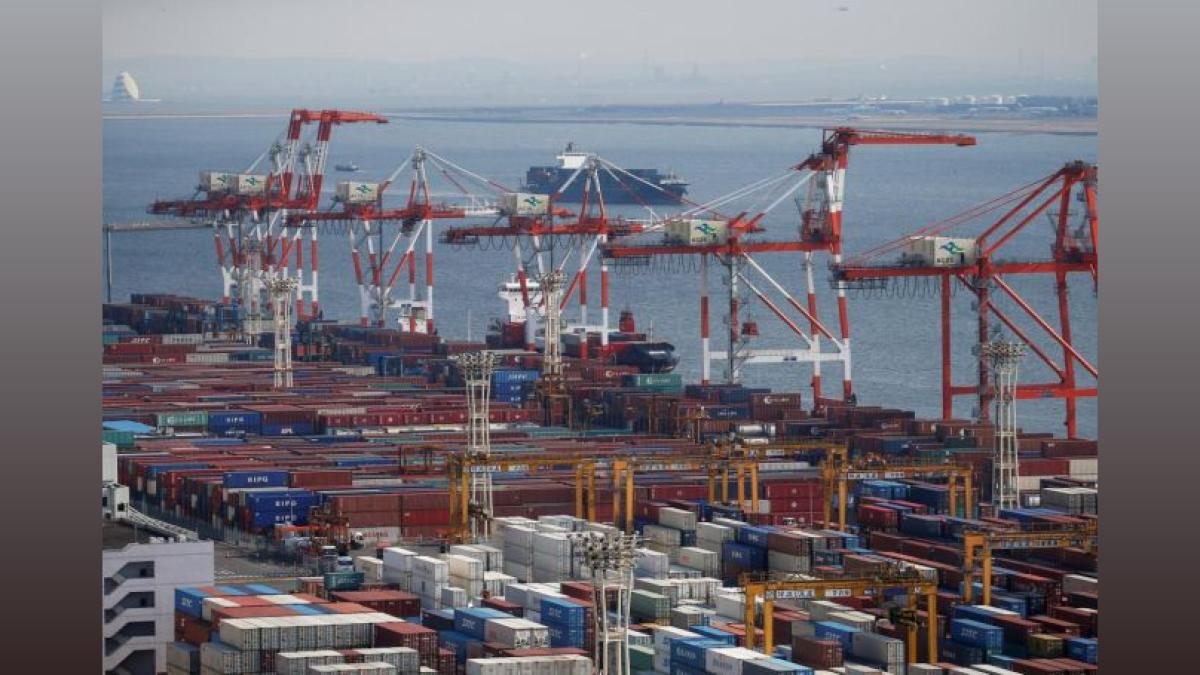RBI Rationalises Export, Import Rules: Exporters Hail Move
RBI's proposed regulations on export and import transactions are lauded by exporters for streamlining processes. The draft guidelines supersede 61 export and 62 import notifications, simplifying trade operations.

New Delhi, Jul 3 (PTI) The RBI's proposal to rationalise regulations that cover export and import transactions would simplify and streamline the processes for the trading community, say exporters.
They said that it is an "excellent effort" by the central bank as the draft operational guidelines for export and import of goods and services on July 2 supersedes 61 notifications relating to exports and 62 on imports.
"The move would help simplify and streamline the export-import processes," Federation of Indian Export Organisations (FIEO) Director General Ajay Sahai said.
The central bank has issued 'Regulation of Foreign Trade under Foreign Exchange Management Act (FEMA), 1999, Draft Regulations and Directions' in this regard.
As per the draft, every exporter should furnish to the specified authority a declaration specifying the amount representing the full export value of the goods or services.
The RBI has sought comments on the draft regulations under FEMA and directions to authorised dealer banks by September 1.
Sahai said the proposal that before putting exporters under 'Caution List', banks will inform the exporters and give them an opportunity of being heard, will address the gap which led to caution listing of few exporters.
"The time period between import and export leg, which hitherto is 120 days, is proposed to be extended to 180 days, as requested by FIEO.
However, FIEO suggested that the draft notification should align with the new Foreign Trade Policy to allow all goods under merchanting trade," he added.
Merchanting trade, also known as intermediary trade, is a trading model that involves an Indian company purchasing goods from a foreign supplier and then selling them to a foreign buyer without the goods entering or leaving India. This is used by exporters involved in agriculture and other commodities trade to hold on to the markets they have developed when restrictions on exports by the Indian government bars shipments or makes them more expensive.
At present merchanting exporters get 125 days to make a payment for goods bought overseas and receive payments for those products sold in third countries. It is proposed to increase this time period to 180 days.
Prior to 2020, the 'caution listing' was done by the RBI if payments for exports got delayed beyond 24 months and was done automatically by the computer system if the payment was not reflected against the shipped goods.
This job was later given to the Authorised Dealers as sometimes banks failed to update the receipt of payment on time and the system at RBI would automatically "caution list" them.
Economic think tank GTRI said that to truly promote e-commerce from India, the RBI must incorporate two crucial changes in its draft.
The Global Trade Research Initiative (GTRI) said that the RBI should waive bank charges for small-value e-commerce exporters and it should accept reduced forex realisation due to discount sales.
"These two issues are major concerns for e-commerce exporters shipping packages with average values of Rs 3,000.
The current RBI mandate requires exporters to submit shipping and payment details to their banks, which then update the RBI's EDPMS (Export Data Processing and Monitoring System) portal," GTRI Founder Ajay Srivastava said.
He added that this closure process is both cumbersome and costly, with banks charging Rs 1,000-2,000 per shipping bill for reconciliation.
For small-value packages, these charges severely erode profits and, in many cases, render the business unviable, he said, adding exporters often sell goods at a discount, resulting in lower payments.
"The RBI should accommodate these reduced payments and allow EDPMS closure accordingly. By implementing these changes, the RBI can significantly alleviate the financial burden on small-value e-commerce exporters and foster a more favourable environment for their growth," Srivastava said.
They said that it is an "excellent effort" by the central bank as the draft operational guidelines for export and import of goods and services on July 2 supersedes 61 notifications relating to exports and 62 on imports.
"The move would help simplify and streamline the export-import processes," Federation of Indian Export Organisations (FIEO) Director General Ajay Sahai said.
The central bank has issued 'Regulation of Foreign Trade under Foreign Exchange Management Act (FEMA), 1999, Draft Regulations and Directions' in this regard.
As per the draft, every exporter should furnish to the specified authority a declaration specifying the amount representing the full export value of the goods or services.
The RBI has sought comments on the draft regulations under FEMA and directions to authorised dealer banks by September 1.
Sahai said the proposal that before putting exporters under 'Caution List', banks will inform the exporters and give them an opportunity of being heard, will address the gap which led to caution listing of few exporters.
"The time period between import and export leg, which hitherto is 120 days, is proposed to be extended to 180 days, as requested by FIEO.
However, FIEO suggested that the draft notification should align with the new Foreign Trade Policy to allow all goods under merchanting trade," he added.
Merchanting trade, also known as intermediary trade, is a trading model that involves an Indian company purchasing goods from a foreign supplier and then selling them to a foreign buyer without the goods entering or leaving India. This is used by exporters involved in agriculture and other commodities trade to hold on to the markets they have developed when restrictions on exports by the Indian government bars shipments or makes them more expensive.
At present merchanting exporters get 125 days to make a payment for goods bought overseas and receive payments for those products sold in third countries. It is proposed to increase this time period to 180 days.
Prior to 2020, the 'caution listing' was done by the RBI if payments for exports got delayed beyond 24 months and was done automatically by the computer system if the payment was not reflected against the shipped goods.
This job was later given to the Authorised Dealers as sometimes banks failed to update the receipt of payment on time and the system at RBI would automatically "caution list" them.
Economic think tank GTRI said that to truly promote e-commerce from India, the RBI must incorporate two crucial changes in its draft.
The Global Trade Research Initiative (GTRI) said that the RBI should waive bank charges for small-value e-commerce exporters and it should accept reduced forex realisation due to discount sales.
"These two issues are major concerns for e-commerce exporters shipping packages with average values of Rs 3,000.
The current RBI mandate requires exporters to submit shipping and payment details to their banks, which then update the RBI's EDPMS (Export Data Processing and Monitoring System) portal," GTRI Founder Ajay Srivastava said.
He added that this closure process is both cumbersome and costly, with banks charging Rs 1,000-2,000 per shipping bill for reconciliation.
For small-value packages, these charges severely erode profits and, in many cases, render the business unviable, he said, adding exporters often sell goods at a discount, resulting in lower payments.
"The RBI should accommodate these reduced payments and allow EDPMS closure accordingly. By implementing these changes, the RBI can significantly alleviate the financial burden on small-value e-commerce exporters and foster a more favourable environment for their growth," Srivastava said.
You May Like To Read
TODAY'S MOST TRADED COMPANIES
- Company Name
- Price
- Volume
- Vodafone-Idea-L
- 11.65 (+ 3.56)
- 106772451
- Alstone-Textiles
- 0.28 ( -3.45)
- 44187760
- Mangalam-Industrial
- 0.88 ( -2.22)
- 39177573
- Sunshine-Capital
- 0.27 (+ 3.85)
- 35956340
- GMR-Airports
- 104.40 (+ 6.37)
- 30453005





